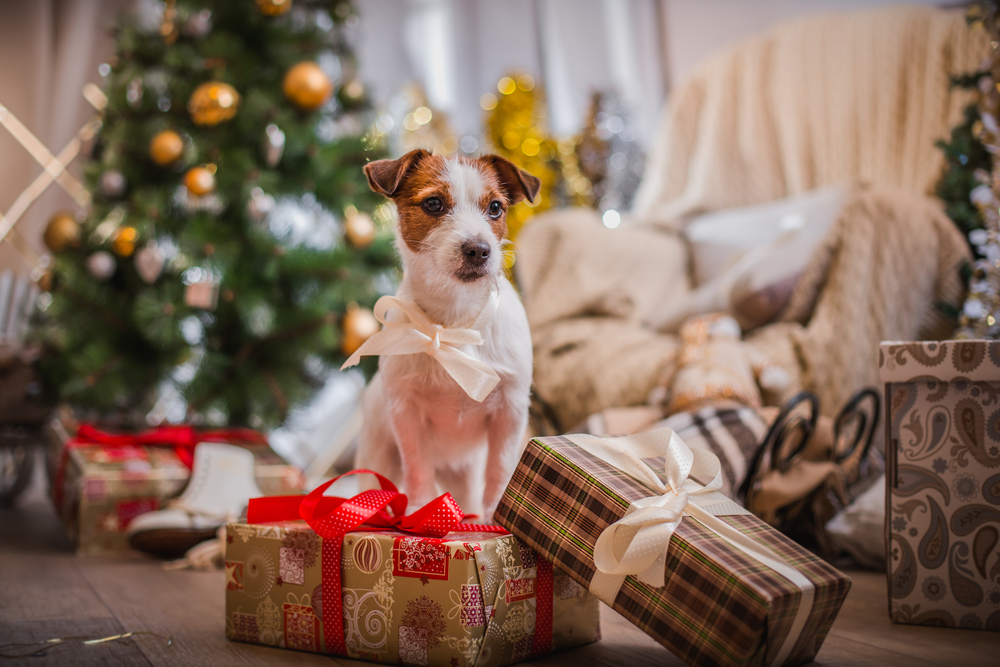The season of indulgence is upon us! Although the Holidays can be a busy time, it is important to keep as close as possible to your pet’s eating and exercise routines. Being diligent in monitoring your pets can prevent toxin ingestion and unwanted sickness, such as pancreatitis. Below we provide some helpful tips for a happy holiday time with your pets!
It’s a good idea to anchor your Christmas Tree so that it does not fall on your pet. If you have a real tree, it’s also important to ensure your pet does not drink the tree water. Tree water may contain fertilizers or pesticides, and the stagnant tree water is also a breeding ground for bacteria. These could lead to numerous issues like stomach upset, illness, or diarrhea.
Keep those Christmas plants out of the house. If ingested, Lilies can cause kidneys failure in cats. Another common plant the poinsettia, if ingested, can cause diarrhea or vomiting. Similar effects can be seen with ingestion of mistletoe.
Skip the tinsel! It’s sparkly and fun, and cats LOVE to play with it and eat it. Ingesting it could lead to intestinal obstruction, vomiting and potentially the need for surgery.
It’s best to keep batteries and wires out of reach of pets. Batteries could cause burns while wires can deliver a potentially lethal electrical shock.
Last but not of least importance is holiday food! Pets love to get into food! Chocolate, bones, fatty and spicy human foods and alcohol, are dangerous and can lead to costly medical bills. Although we like to share our meals with our pets, it’s best to buy them their own tasty canned food rather than sharing your turkey and gravy.
To keep your pet occupied while the humans are enjoying the celebrations, why not try buying them a special toy or providing a treat delivery toy that will give them ongoing fun.
Hopefully, with keeping these tips in mind everyone can enjoy a happy holiday!
Written by: Tracy LeFler, Site Coordinator and edited by Janis Wall, Technician




